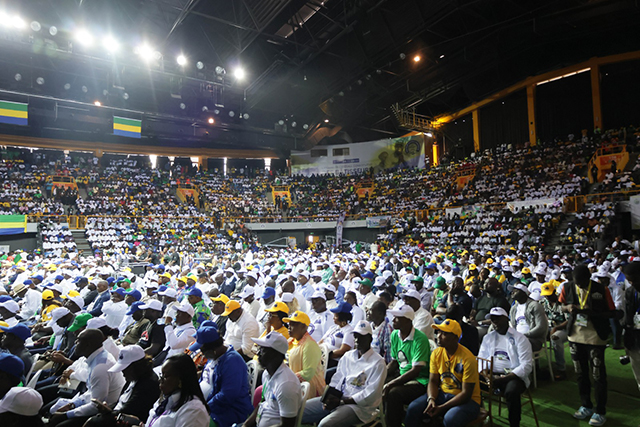
With the backing of President Brice Clotaire Oligui Nguema and the collapse of its traditional rivals, the newly-formed Union Démocratique des Bâtisseurs (UDB) is confidently marching toward a likely electoral triumph in Gabon’s upcoming legislative and local elections.
However, behind its strategic momentum lies a brewing resistance, led most notably by Alain-Claude Bilie-By-Nze’s Ensemble Pour le Gabon (EPG), which is challenging the emergent political order.
Officially launched on 5 July 2025, the UDB has rapidly become the institutional engine of Oligui Nguema’s transitional regime.
With administrative support, revitalized grassroots networks, and a narrative of national “refoundation,” the party has positioned itself as the dominant force ahead of the September vote.
Yet, this consolidation of power is raising concerns over democratic pluralism in a system still recovering from the post-coup reshuffling.
Critics warn that the UDB’s strategy of rapid expansion — absorbing former allies and opponents without ideological clarity — risks creating a hollow political shell: powerful in appearance, yet devoid of depth.
The UDB’s ascendancy has been aided by the fragmentation of Gabon’s political landscape. The once-powerful Parti Démocratique Gabonais (PDG), previously the pillar of the Bongo regime, is in disarray — crippled by internal leadership struggles and the legacy of a discredited system.
Similarly, REAGIR, once a symbol of anti-establishment fervor before the military takeover, has faded into the transitional government’s orbit, its identity blurred by co-optation.
The Union Nationale (UN), long considered the moral backbone of the opposition, is attempting a comeback. Revitalized by a younger, more socially democratic leadership, the party has re-entered public discourse, advocating for institutional reforms, transitional justice, and equitable media access.
However, its limited electoral reach and muted rhetoric have restrained its impact.
In contrast, Bilie-By-Nze’s EPG is emerging as a combative and coherent alternative. Having rejected all compromise with the military leadership, EPG has embraced a defiant posture, accusing the regime of “uniformed authoritarianism.
” Bilie-By-Nze, leveraging his self-imposed exile and a digitally savvy youth base, is rallying disillusioned urban voters fatigued by superficial political shifts.
Though his hardline stance risks institutional marginalization, it provides EPG with clear strategic identity and public visibility.
For the UDB, the upcoming elections are more than a quest for power — they represent a crucial test of legitimacy. While the party commands administrative machinery and political momentum, it lacks a defined ideological compass.
Currently shaped by tactical alliances and presidential charisma, UDB faces the critical challenge of articulating a cohesive doctrine and embracing internal pluralism.
If it fails to define its values and tolerate opposition voices, the UDB risks becoming a vehicle for veiled neo-conservatism, rather than the force of renewal it claims to be.
As Gabon braces for a new political chapter, the battle is no longer just about seats — it’s about identity, legitimacy, and the true meaning of democratic transition.



